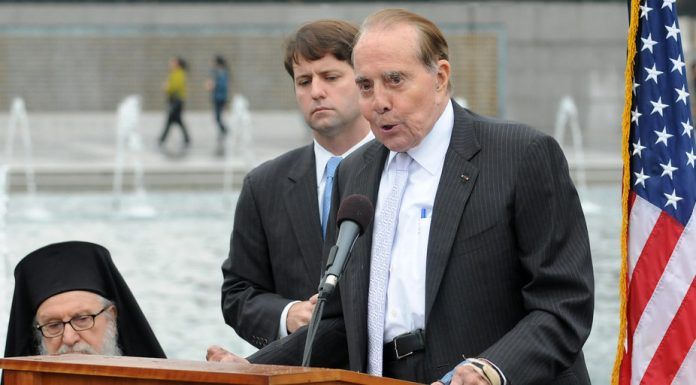In an interview celebrating his 98th birthday, Republican Bob Dole, the former Senate Majority Leader and presidential candidate said that while he still supports former-President Donald Trump, he’s got Trump fatigue.
“I’m a Trumper,” Dole told USA Today. “I’m sort of Trumped out, though.”
He expressed disappointment that Trump made claims of election fraud without sharing evidence of “one bit of fraud in all those lawsuits he filed and statements he made.”
“I’m a Trumper,” Dole said at one point during the conversation. But he added at another, “I’m sort of Trumped out, though. https://t.co/cbpqyJfelv
— Kaitlan Collins (@kaitlancollins) July 22, 2021
Dole said that the U.S. has “lost something” recently, striking a tone that cast blame on both Republicans and Democrats.
“I can’t get my hand on it,” said Dole, “but we’re just not quite where we should be, as the greatest democracy in the world. And I don’t know how you correct it, but I keep hoping that there will be a change in my lifetime.”
Dole served on the 10th Mountain Division during World War II, where he suffered from a severely injured spinal cord, right arm and shoulder after being hit by German fire.
Later, Dole often famously held a pen in his right hand in an effort to somewhat hide the injury.
His wounds, however, didn’t limit him.
He served in both the U.S. House and in the Senate, running as then-President Gerald Ford’s running mate in 1976 and later as Republican presidential nominee in 1996.
Dole, suffering from stage-4 lung cancer, said that President Joe Biden visited him when the cancer was first diagnosed in February.
“A great, kind, upstanding, decent person,” Dole said of Biden.
But the kind words didn’t stop Dole from chastising Biden for killing the Keystone Pipeline and other swings to the extreme left by the president.
“I asked him, I said, ‘Why did you close that pipeline in (South) Dakota?’” Dole said.
Dole said that he’ll try to make “one more trip home,” to Wichita, Kansas, where he’ll visit the Veterans Medical Center and the political institute at the University of Kansas that bears his name.

